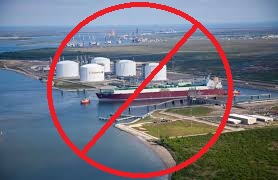PA Wants Gas Drilling Illness Database
June 18, 2011Insiders Sound an Alarm Amid a Natural Gas Rush
June 26, 2011Health Secretary Wants Tabs on Shale: Seeks More Resources to See if Gas Drilling Poses a Health Risk
HARRISBURG — The state’s top health official said Friday that his agency needs resources to create a registry for tracking whether spikes in illnesses could be related to shale gas drilling.
That request by Department of Health Secretary Eli Avila to the Marcellus Shale Advisory Commission came as the panel starts to finalize its recommendations for a July 22 report.
Dozens have spoken during the commission’s public-comment sessions, saying they’re concerned about public health risks from gas drilling.
Mr. Avila said his department has received “several dozen” similar calls in the past year, often from those who believe their health condition is a result of unsafe drilling practices. The agency needs a “comprehensive and scientific approach” to evaluating those concerns, he said.
“We investigate them all individually now,” Mr. Avila said. “It would be great to put them all together, to get to the root cause, if there is a root cause or linkage.”
He told the panel that officials so far “have seen no linkage between drilling and the illnesses presented to us,” adding that a larger sample size is needed to identify health-related trends.
“We’re really at the frontiers of this, and we can make an example” for other states, he said.
One eventual outcome, the secretary said, would be to undertake studies that compare the incidents in areas with heavy drilling with a control group of random residents. Part of the aim would be to help determine if the illnesses were naturally occurring or related to the well sites.
Such a registry was estimated to cost about $2 million and could require outside groups or other agencies, such as the state Department of Environmental Protection, to assist with the analysis.
Several, including DEP Secretary Michael Krancer, questioned how a database would show that a particular chemical was causing an illness. Mr. Avila said it could at least show statistical significance if certain conditions become more prevalent in a particular region.
The health secretary also said more routine testing is needed of air, water and solid waste samples to check for risks, as well as additional outreach to health-care providers in drilling areas.
The panel also heard about another controversial issue related to shale, with a Penn State geologist reviewing the state’s laws regarding “pooling” plots of land.
Pooling would allow a company to drain gas from an unleased property, as long as they have leased a certain percentage of the surrounding land. Lawmakers have balked at allowing the practice, citing concerns about property rights, while those in the industry and some environmentalists say it allows for more gas removal with fewer well pads.
Terry Engelder of Penn State defended the practice as necessary, saying it is inefficient both economically and environmentally to allow a single property owner to block access to land that may be leased for drilling.
The commission has a final set of work-group meetings at the end of this month and one more full meeting on July 15.
Post-Gazette Harrisburg Bureau
For more on “Pooling” Click here



